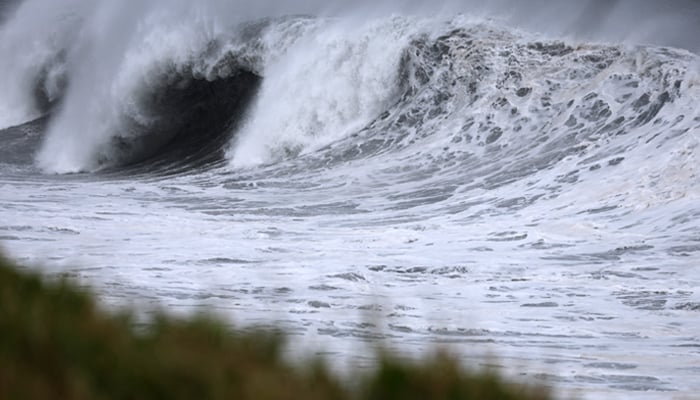Karachi 'at risk' of cyclone developing in Arabian Sea
Low-pressure system present over Arabian Sea can intensify and turn into a cyclone between June 10 and 11
A low-pressure system present above the Arabian sea is likely to turn into a cyclonic circulation that could hit Karachi and other coastal areas of Pakistan, weather expert Jawad Memon said on Monday.
As per Memon, the low-pressure system can intensify and turn into a cyclone between June 10 and 11, posing a possible threat to the coastal belt of Sindh, Balochistan, Gujarat (India) and Oman.
He said that the potential cyclone will be named "Biparjoy", suggested by Bangladesh, which means "destruction".
Formation of cyclones in the Arabian Sea is not a rare occurrence as such a situation arises almost every year and sometimes multiple times in a year. The past cyclones have not directly hit Pakistan and caused damage in recent years as they lose intensity by the time they reach the coast.
However, it is a fact that tropical cyclones are nature's most destructive weather phenomena, capable of causing widespread devastation and loss of life. As there is a risk of a cyclone, it is essential to grasp the fundamentals of tropical cyclones and the associated perilous storm surges.
Here are the key insights into these dangerous forces of nature and examine their potential consequences.
What are tropical cyclones?
Originating over warm tropical waters, tropical cyclones are intense low-pressure systems characterised by powerful winds near their centre. These winds can extend for hundreds of kilometres, leading to heavy rainfall, flooding, and extensive damage to property and infrastructure.
-
Security forces gun down 30 terrorists in multiple IBOs in KP: ISPR
-
MQM-P calls for new province in Sindh
-
US report validates Pakistan military edge over India: PM
-
Banned TTP poses serious threat to Pakistan security: UNSC panel
-
CM Afridi clarifies remarks on by-poll after ECP requests army deployment
-
Dubai sees 3.2m Pakistani passengers in 2025 as airport sets new milestone
-
Security forces kill 23 Indian proxy terrorists in KP's Kurram
-
Pakistan to construct island to boost oil exploration: report












